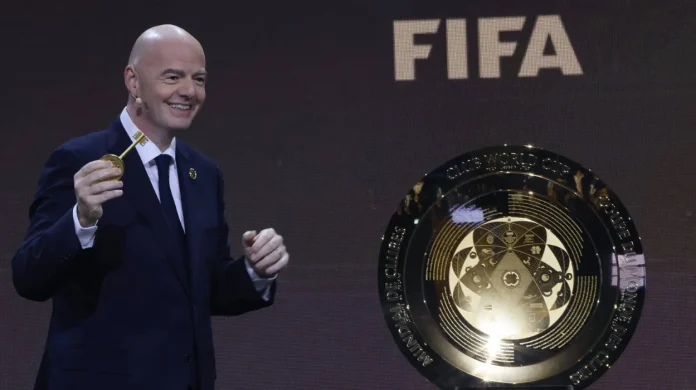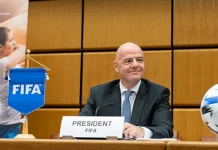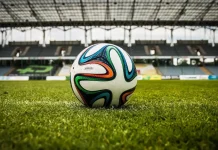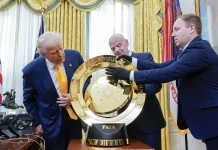FIFA, football’s global governing body, has long been dogged by corruption. The 2015 Zurich arrests of senior officials exposed not an isolated scandal but years of covert dealings and patronage. More than $150 million in bribes tied to media contracts and World Cup hosting rights revealed the organization’s systemic rot.
Although foreign investigations caused some short-term turmoil, it did not do much to alter the structural behavior of the organization. The Michael Garcia report on the 2018 and 2022 world cup bids was met with a more serious approach in hiding, instead of revealing, by the organization. FIFA did not release the entire report but released a summary report and this was interpreted by many people as an effort by the organization to play down misconduct and minimize reputational harm. That trend has continued to exist, indicating unreadiness to permit complete transparency despite the changes in the world perception of what is required.
Governance Failures And Leadership Controversies
The tenure of FIFA president Sepp Blatter continues to show how FIFA is systemically weak. Although he was ultimately banned due to his unethical payments, his exoneration by the Swiss courts in 2022 brought into doubt whether ethical standards could be enforced in FIFA. Leadership officers like Jeffrey Webb and Michel Platini were also involved in conspiracies during his rule which led to the general decline of the reputation of FIFA. These scandals were not the only ones but a part of a bigger culture of partial enforcement and selective silence.
When Blatter resigned, Gianni Infantino promised institutional reform. Nevertheless, analysts believe that rather than undermining autocratic propensities, he has been consolidating power. The mechanisms of independent oversight were undermined gradually and those who were open to criticism of internal policies were either sidelined or bullied away. According to governance analyst Mark Pieth in 2025, FIFA has failed in its reform architecture, implying that FIFA’s internal politics cannot easily be attacked in the name of real accountability.
Governance Reforms As A Facade
Reform at FIFA has been largely about appearance. Ethics committees, term limits and financial disclosures were either diluted or varied. These mass defections of reform-based officials indicated internal division on how accountability mechanisms are put to practice. The 2025 data published by Transparency International suggests that fans do not trust FIFA higher than 30 per cent, which is a strong drop in terms of status compared to the 2015 data.
These numbers are not merely a representation of the scandals in the past but an indication that FIFA still is seen as a change organization that does not change anything but acts like it does. The absence of effective checks on presidential power and continuous secrecy of financial transactions strengthens the perception that the organization cannot be pressured by any outside force and questions its ability to enjoy legitimacy in the world.
The Direct And Indirect Costs To Football Fans
The fan base of football, which was a strong unifying instrument and a symbol of cultural affiliation previously, is now facing disillusionment toward the highest governing institution of the game. The net effect of FIFA corruption scandals being covered up has resulted in a drop in fan interest, especially among younger viewers. In 2025, surveys indicate that FIFA endorsed tournaments have fallen out of favor and many of those who no longer watch have cited the lack of trust as the most important reason.
The commercial effect is also obvious. Sponsorship arrangements were getting more risk-averse and brands increasingly feared reputational risk. The losses in terms of revenue are usually transferred to fans in the form of increased prices of the tickets, decreased public access to major events, and increased commercialization of grass-root programs. Effectively, they are paying FIFA with their money and hearts to have failed in governing the sport.
Undermining The Sport’s Integrity
These flaws in the system have not spared the integrity of the sport. In different parts of the football globe, match-fixing accusations and gambling controversies continue to exist with the help of weakly regulated administrative frameworks. Lack of uniformity in oversight and sanctions within FIFA has encouraged the activities of criminal syndicates who have taken to football as an instrument of illegal gains.
The high-level corruption has led to high-profile legal wins, most prominently the 2025 reinstatement of convictions by U.S. federal courts. However, these examples highlight the weaknesses of FIFA in its own enforcement ability. Though personal actors are supposed to be responsible, the structural system can be easily manipulated, and it does not mean that the sport can be trusted on and off the field in the future.
Navigating Transparency And The Demand For Accountability
There have been huge challenges towards reorganizing the power structure of FIFA. So regional confederations, with various political and financial stakes, tend to oppose reforms that will weaken them. Although theoretically this kind of decentralization serves as a check to a centralized power, it has in fact resulted in a disjointed terrain in which actual accountability is watered down in the face of competing interests.
Reformers have taken up proposals of independent oversight based on models of external judicial or ethics commission. Nevertheless, such proposals are normally resisted internally under the guise of FIFA in its sovereign independence. That opposition shows a deeply rooted fear of letting go of power, even to the detriment of undermining social confidence and authority.
The political economy of international football also increases structural inertia. The incentive to preserve the status quo is strong among the individuals involved as long as privileges, such as hosting rights, commercial licenses and organizational privileges are preserved through opaque processes. This has become a cyclical nature of corruption, cover-up, and restricted reform that keeps the sport in a managed decline.
The cover-up of FIFA corruption scandals has many financial costs and legal suits, but its cost is even greater to the very fabric of the sport. Previously glued together by a shared passion with the game, fans all over the world are now struggling with the contradiction of cheering this sport that is so undermined by its own governance. With future tournaments underway and a world cup approaching in 2030, the failure of FIFA to change in any meaningful way is likely to turn the very fans that keep it afloat away. The world of football has not been satisfied and the passion of the game cannot be compared with integrity but it is a question that hurts badly and has not yet been answered by the leading institution of the game.













